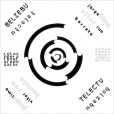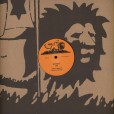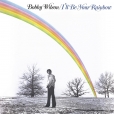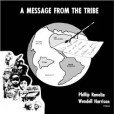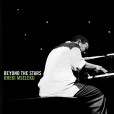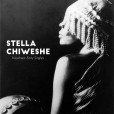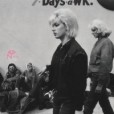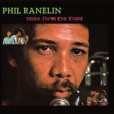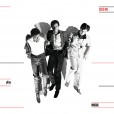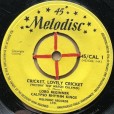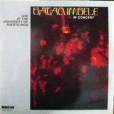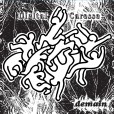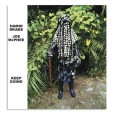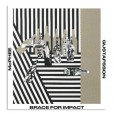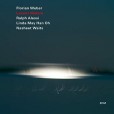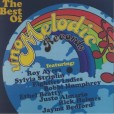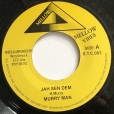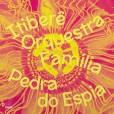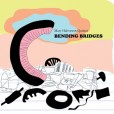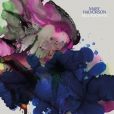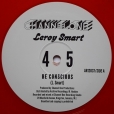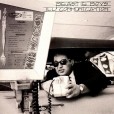Your basket is empty

Deep, rootical lovers, darkly seething with one-step-at-a-time hurt and steely, vengeful self-esteem. Hypnotic, stripped and disconsolate, with implacable drums and bass, dubwise from the start, the production is classic, unmistakable Wackies, featuring Fabian Cooke’s scattered, abrupt organ stabs and minimal guitar-work, Ras Menelik’s masterful nyabinghi drumming, and harmonic commiseration by Sugar Minott and the Love Joys (with a strangled sob at intervals).
Over six minutes, the extended mix is different to the Love Power LP; and the additional dub, released here for the first time, is unmissable for its extra rawness and dubbed-out emptiness.
Plus thirteen minutes of blissful disco-reggae on the flip: two contrasting dubs of the Giorgio Moroder/Irene Cara/Flashdance cut from Love Power, both previously unreleased and a bit sick.
An electrifying, previously unreleased studio album, recorded in 2003, this stunning solo piano suite condenses Mseleku’s visionary overstanding of South African music into a flowing, pulsing statement in six parts. With jazzwise echoes of marabi, amahubo, maskanda and Nguni song forms binding it to the deep music of Mseleku’s Zulu heritage, Beyond The Stars provides what Blue Note recording artist Nduduzo Makhathini describes in his liner notes as ‘a divine summary’ of Bheki’s life story: ‘a sonic pilgrimage from the beautiful and organic landscapes of Durban, to the vibrant energy of London and ultimately toward the inner dimensions of one’s being.’
A magnificent start by new label Tapestry Works.
‘Phil Ranelin was a session trombonist for the likes of Steve Wonder before setting up the Tribe label with Wendell Harrison in Detroit… The title track is lusciously, greasily funky and stands in pretty stark contrast to the kind of airbrushed fusion that was in vogue at the time. Sounds From The Village is even better (and dirtier), showcasing Ranelin’s oily trombone gymnastics and a viciously fuzzed guitar solo… The obligatory Coltrane tribute He The One We All Knew is the kind of groove-based free-playing typical of Pharoah Sanders, though only really picks up when the band launch into post bop swing mode in the last six minutes or so… Beautiful stuff… Essential.’
VG. Felt-tipped cross-hairs.
A stupendous, exhilarating mix of Afro-Latino roots, out-jazz and rollicking dance rhythms by this top-notch twenty-piece, from 1988. Killer.
‘Twelve frenetic bursts of scrapyard detournement, meticulously stitched together with dubbed-out vocals and disjointed drum machines, at the limits of bedroom electronica and DIY. Originally released in 1982 on his own Record Sluts label, in a single run of five hundred copies. Recommended to fans of Suicide, 20 Jazz Funk Greats and early Cabaret Voltaire.’
A dreamily odd, Antillean blend of synths, flute and drum machines, featuring a children’s choir. Originally a tiny 1986 pressing in Guadeloupe, revived by the Diggers Digest crew.
‘Deben Bhattacharya (1921–2001) was a highly influential field recordist, poet, filmmaker, musicologist and amateur ethnomusicologist, based in Calcutta and Paris. He produced a vast number of LPs, CDs, videos and radio shows of traditional music from India, Asia, Africa, the Middle East, and Europe.
‘Never before published, Paris To Calcutta features over four hours of music and is Deben’s impressionistic account of a 1955 journey overland, in a converted milk delivery van, from France to India, collecting and exploring music along the Desert Road.
‘With four CDs of recordings, photographs, Deben’s original recording notes, musical transcriptions and more. An amazing glimpse into a time long gone and essential listening for anyone interested in folk and world music traditions.’
‘The session somehow consolidated their shared energy in an unexpected way — the drummer’s incredible warmth and sense of buoyancy, the saxophonist and trumpeter’s preternatural musicality and quest for social justice. The recording started with McPhee reciting words by Harriett Tubman, resulting in the title track; Drake’s support was an achingly slow Max Roach-like beat. From this inspired, inspiring starting point, the twosome frolicked through a rich program, McPhee donning tenor and alto saxes, and pocket trumpet, Drake turning momentarily to the frame drum. Each musician contributes an introspective solo track. McPhee at one point plays trumpet into an open gong, which gives him otherworldly overtones, a sort of acoustic version of electric Miles…’
‘As searching and searing as anything either of them has made, these 2008 duets live up to their explosive title. Gustafsson is known for his energy, and it’s here in droves, but there are other nuances brought out by McPhee — a supple sense of melodicism (hey now, Gustafsson is a Swede, so by birthright he’s melodic) and the love of experimental sound-making that McPhee displayed on his sound-on-sound recordings in the late ‘60s…
‘Insanely powerful. We recommend that you prepare yourself for the impact.’
‘Following his ECM debut of duos with Markus Stockhausen, the pianist leads a strong cast through a programme of his compositions and sketches. Whether paying tribute to his mentor Lee Konitz on Honestlee, impressionistically conveying the glittering Melody Of A Waterfall, or generating impactful drama out of fragments of sound on Butterfly Effect, Weber continually draws fresh responses from his players.
‘The strong, grounded bass of Linda May Han Oh contrasts strikingly with Nasheet Waits’s fleet, fluid drumming, setting up new contexts for Ralph Alessi’s elegantly inventive trumpet and the leader’s highly creative piano playing.’
The genre-slaying, polyharmonic, polyrhythmic ‘universal music’ of Hermeto Pascoal and his bassist Itibere Zwarg, performed in 2001 by a workshop comprising twenty-nine of Rio de Janeiro’s most exceptional young musicians.
An overlooked masterpiece amongst recent Brazilian recordings: invigorating and marvellous; warmly recommended.
